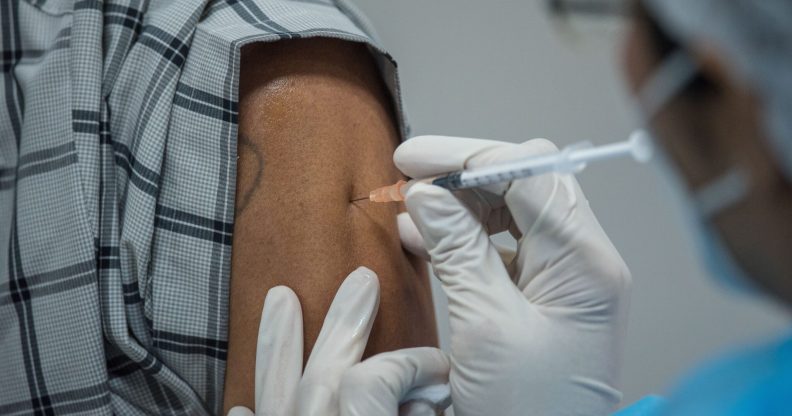Game-changing injectable PrEP taken every other month to be rolled out after FDA approval

(Photo by Peerapon Boonyakiat/SOPA Images/LightRocket via Getty Images)
A new, injectable form of PrEP has been approved by the US Food and Drug Administration. (FDA)
PrEP is the revolutionary drug which, when taken correctly, can prevent a person from acquiring HIV.
Until now it has only been available in daily pill form. The new injectable medication, Apretude, is given first as two jabs a month apart, and then a jab every other month. It will be available in the US from early 2022.
“Today’s approval adds an important tool in the effort to end the HIV epidemic by providing the first option to prevent HIV that does not involve taking a daily pill,” said Dr Debra Birnkrant, director of the Division of Antivirals in the FDA’s Center for Drug Evaluation and Research.
Birnkrant said that the new drug “will be critical to addressing the HIV epidemic in the U.S., including helping high-risk individuals and certain groups where adherence to daily medication has been a major challenge or not a realistic option”.
Those receiving the injection must be tested regularly for HIV, as with all PrEP.
Exciting news about injectable #PrEP, which can be a game-changer in reducing new #HIV infections among women at higher risk.
Now, we must work to ensure these life-changing injections are accessible, affordable & equitably distributed to people who choose to use them. https://t.co/WUvdfxXbbZ
— Winnie Byanyima (@Winnie_Byanyima) November 9, 2020
The new medication has raised hopes amongst campaigners, as taking oral treatment daily can be cumbersome, and carry with it stigma.
Gabriel Maldonado, of the public policy group TruEvolution, told The Independent that people can experience “fears about accidental disclosure of their medicine, as well as general complications from daily living.”
“Together, these issues may contribute to low rates of PrEP usage and the expansion of the HIV epidemic.”
HIV disproportionately affects those in queer communities of olour. In 2019, Black/African Americans represented 13 per cent of the US population, yet accounted for over 40 per cent of new HIV diagnoses. The Latinx community, too, is overrepresented. Despite accounting for only 18 per cent of the U.S. population, they accounted for 30 per cent of new HIV diagnoses in the same year.
Although there is great global inequality, with women in sub-Saharan Africa being two times more likely to contract the virus than men, the new medication has only been approved in the US so far.

